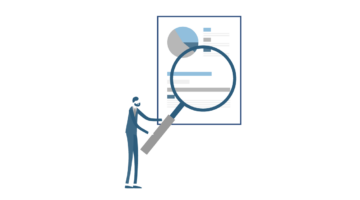Is It Time to Outsource Your Accounting?
The dynamics of modern business are constantly evolving, demanding nimbleness and adaptability. One aspect of your business that can significantly impact its success is financial management. Whether you’re a small startup or an established enterprise, managing your finances effectively is crucial for making informed decisions, ensuring regulatory compliance, and achieving long-term growth. However, as your business grows and the financial complexities increase, you may find yourself wondering: Is it time to outsource your accounting? In this article, we’ll explore the signs that indicate the right moment to consider outsourcing your financial operations and the benefits that come with it.
Signs It’s Time to Consider Outsourcing Your Accounting
Overwhelmed Resources: One of the most apparent signs that it’s time to consider outsourcing your accounting is when your in-house accounting team or personnel are struggling to keep up with the increasing volume of financial transactions and reporting requirements. If your team is consistently working overtime to meet deadlines, it’s a clear indication that your current setup may not be sustainable.
Compliance Challenges: Staying compliant with evolving tax regulations and accounting standards has become a daunting task, and you’re concerned about potential errors or oversights. Compliance is critical to avoid legal issues and financial penalties. If you find that compliance is becoming a significant burden, outsourcing can provide access to experts who specialize in staying up-to-date with regulatory changes.
Limited Financial Insights: Your current accounting setup provides basic financial data, but you lack in-depth insights that can drive strategic decision-making. Modern businesses require not just data but actionable insights from financial reports. If you find that your financial data is not helping you make informed decisions, it may be time to consider outsourcing to experts who can provide in-depth analysis.
Inefficient Processes: Manual and time-consuming financial processes are draining your resources and affecting your operational efficiency. Many businesses waste valuable time on manual data entry, reconciliation, and other repetitive tasks. Outsourcing can introduce automation and streamline processes, reducing both costs and the potential for human error.
Scaling Challenges: As your business grows or expands into new markets, managing multiple financial aspects becomes increasingly complex. Your in-house team may not have the capacity or expertise to handle these new challenges efficiently. Outsourcing can provide the scalability required to accommodate your growth.
Difficulty in Hiring and Retaining Talent: Attracting and retaining qualified accounting professionals can be challenging especially in competitive job markets. Over the last two years, there has been a significant departure of over 300,000 accountants and auditors in the U.S., a 17% workforce reduction. If you find it difficult to hire and retain skilled accountants, outsourcing can provide access to a talented team without the recruitment struggles.
Choosing the Right Accounting Partner
When considering outsourcing your accounting, it is essential to choose the right partner. Here are some key factors to consider:
Expertise: Ensure the outsourcing firm has expertise in your industry and understands your unique financial needs. Industry-specific knowledge can be invaluable in providing tailored financial solutions.
Technology: Verify that they use up-to-date accounting software and technology for efficiency and accuracy. Technology plays a significant role in modern financial management.
Security Measures: Ensure they have robust security measures in place to protect your financial data. Data security is paramount when outsourcing sensitive financial information.
Customization: Look for a partner who can tailor their services to your specific requirements. Your business is unique, and your accounting solutions should reflect that.
Communication: Open and clear communication with your accounting partner is crucial for a successful partnership. Ensure they are responsive and accessible when you need assistance or have questions.
Embracing Financial Efficiency
Do not let financial challenges hold your business back or compromise its future. Embrace the opportunity for financial transformation through outsourcing and ensure that your financial management is not just a support function but a driving force behind your success. Contact NOW CFO for a free consultation and embark on a journey toward a more efficient, insightful, and prosperous financial future for your business.



